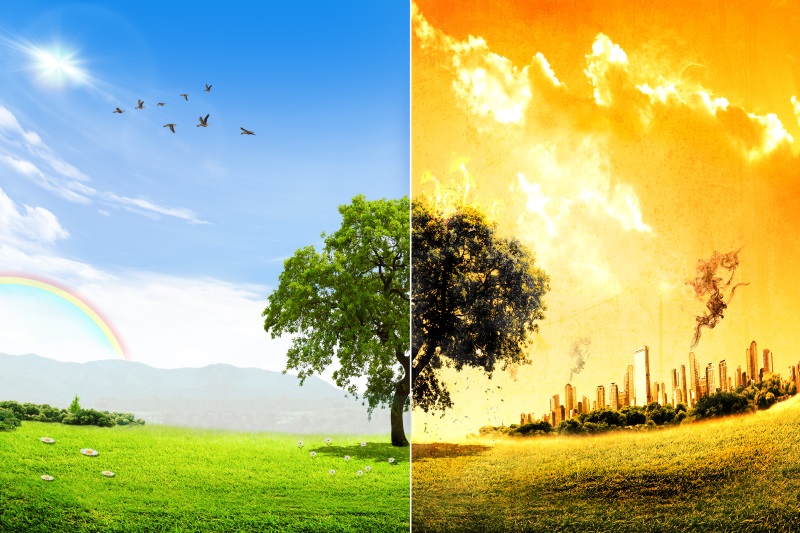Planet Earth needs you!

The Intergovernmental Panel on Climate Change has again convened to discuss how to address global warming. Their report, released October 8, has highlighted that to prevent future temperature increases, rapid, far-reaching and unprecedented changes in all aspects of society will be required. But it is also evident that we need innovative thinkers and problem solvers to continue to meet the challenge.
What is the Intergovernmental Panel on Climate Change?
The Intergovernmental Panel on Climate Change, or IPCC, is “the leading international body for the assessment of climate change. It was established by the United Nations Environment Programme (UNEP) and the World Meteorological Organization (WMO) in 1988 to provide the world with a clear scientific view on the current state of knowledge in climate change and its potential environmental and socio-economic impacts”.

Participation in the IPCC is open to all UN member nations. These nations are responsible for selecting and supporting individuals who serve the IPCC by contributing scientific, technical and socio-economic information for discussion and decision making.
What came out of the recent IPCC meeting?
According to a recent press release, one of the main points was that the impacts of climate change could be avoided or minimised by limiting global warming to an increase of 1.5°C compared to 2°C or more.
While half a degree doesn’t sound like much, it is when we’re talking average global temperatures. According to Panmao Zhai, Co-Chair of IPCC Working Group I, we’re already seeing the negative effects of a 1°C rise – “more extreme weather, rising sea levels and diminishing Arctic sea ice, among other changes,” he said. This will only worsen with another 0.5°C rise. How so?
The extremes in weather and climate will become even more extreme – severe droughts, more heat waves, larger floods, rising sea levels, to name a few. And as Hans-Otto Pörtner, Co-Chair of IPCC Working Group II, points out: “Every extra bit of warming matters, especially since warming of 1.5°C or higher increases the risk associated with long-lasting or irreversible changes…”
What can be done
In a nutshell, we need to cap the rise of global temperatures at 1.5°C, preferably less. This will minimise the damage and give ecosystems time to adapt. But it really is easier said than done. Climate change is complex, and there are many contributing factors. The solution is likewise complex. That’s exactly why the IPCC brings together talented researchers and experts from around the world, who are working in various fields of STEM and the humanities.
Scientists believe it is within reach – provided we make some needed changes. For example, the human race needs to adopt more renewable energy options. This would reduce CO2 emissions – one of the gases responsible for the warming.
How it involves you
Climate change effects our planet, so it affects us all. And some of the changes that could be proposed in the future may affect you personally. Not to mention the adjustments you can make to your daily living right now, so you can reduce CO2 emissions.
But there’s a bit more to it. As was mentioned above, the IPCC brings experts together from different fields to discuss one topic. So, we will need more experts in the future. And we need fresh ideas and creative thinking to pose solutions to this most complex issue. That’s where you come in.
How would you like to be a scientist on the IPCC? There are several paths to doing this. Given that climate change is a such a complex and dynamic issue, you could study many of the science disciplines – chemistry, biology, physics, environmental science, geology, marine studies, IT – and then specialise in climate science.
Yes, we need you on the IPCC!
Read more about this:
IPCC: Summary for policymakers of IPCC special report on global warming of 1.5°C approved by governments
IPCC: About the organisation
Australian Museum: What are the impacts of climate change?

